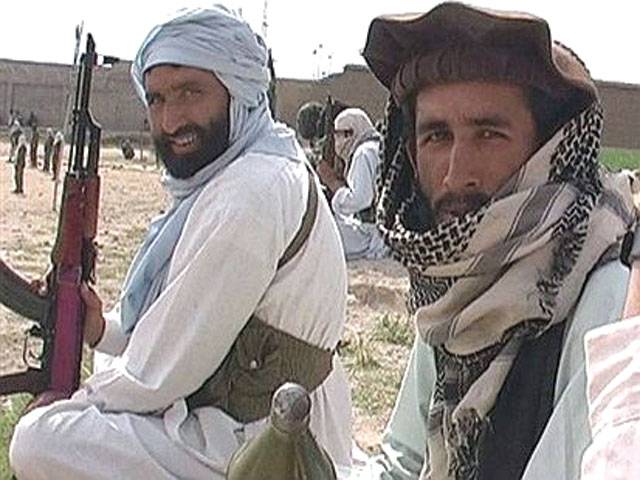CAMP THUNDER, Afghanistan : Taliban militants in Pakistan have established an increasingly close relationship with insurgents from across the border in Afghanistan, supplying them with explosives and well-trained fighters, a senior Afghan army commander said on Wednesday.
But in recent weeks the two groups have secretly agreed to work together, with Pakistani militants announcing a ceasefire with their government in order to preserve militant bases used to stage cross-border attacks. Maj Genl M Shareef Yaftali, in charge of several eastern provinces on or near the Afghan border with Pakistan, said this relationship was growing stronger. “They are working together now. They are going to hold this relationship. It helps them,” Yaftali, commander of the 203rd Corps, said.
“The Afghan and Pakistani Taliban have the same ideology. They are the same people. They are of the same school.”
The alliance complicates the picture for Yaftali’s troops as they try to bring law and order to some of the most violent and inaccessible areas of Afghanistan where militants linked to al Qaeda are believed to be holed up in remote mountain lairs.
But some are sceptical about the Taliban’s current ability to inflict heavy losses, pointing to the fact that there were no major attacks during last weekend’s presidential election in Afghanistan which the insurgents had vowed to disrupt.
Afghanistan has a notoriously bad relationship with Pakistan and often accuses its neighbour, as well as its ISI intelligence agency, of supporting militants and helping stage attacks on Afghan soil - a charge furiously denied by Pakistan.
The changing nature of the war is a concern to commanders on the ground, particularly those like Yaftali who are deployed near Afghanistan’s porous and lawless border with Pakistan where Taliban attacks on security forces and civilians occur daily.
It also comes at a worrying time when U.S.-led forces are preparing to pull out by the end of the year, leaving Afghan troops to tackle the insurgency largely on their own.
Operations are winding down across the country. At Camp Thunder, a sprawling base near the city of Gardez where Yaftali spoke to reporters, U.S. army officers are working with his men only as advisers and leave front-line fighting to Afghan forces.
Yaftali said many students brainwashed in madrassas, in Pakistan had crossed the border to join forces with the Taliban. He said some 30,000 madrassas were shut in Pakistan last year, prompting an exodus of radically minded fighters.
“If one group is defeated they bring new fighters and it is easy for them to do that,” said Yaftali, whose command extends over an area of about 83,000 square kllometers with a population of five million people.
He said most of the explosive devices also came from Pakistan. “There are no explosives-making factories in Afghanistan,” Yaftali said. “All the explosives enter Afghanistan from Pakistan. We are close to North Waziristan and there are Taliban training ground and funding sources.”
Friday, April 19, 2024
Cross-border Taliban alliance growing stronger

Caption: Cross-border Taliban alliance growing stronger
9:58 PM | April 18, 2024
Hepatitis Challenge
April 18, 2024
IMF Predictions
April 18, 2024
Wheat War
April 18, 2024
Rail Revival
April 17, 2024
Addressing Climate Change
April 17, 2024
Justice denied
April 18, 2024
AI dilemmas unveiled
April 18, 2024
Tax tangle
April 18, 2024
Workforce inequality
April 17, 2024
New partnerships
April 17, 2024
ePaper - Nawaiwaqt
Advertisement
Nawaiwaqt Group | Copyright © 2024





